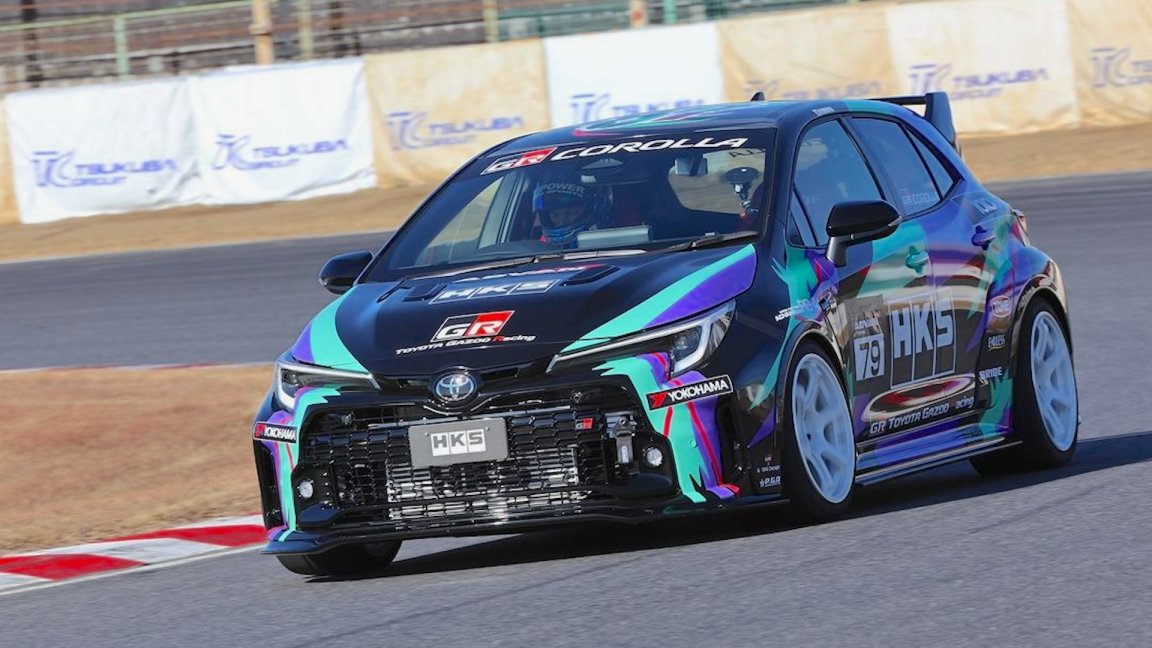The Toyota GR Corolla already has a firecracker of an engine. The 1.6-liter G16E-GTS turbo three-cylinder can hold over 700 horsepower on stock internals, and more will be possible when the aftermarket cracks it open. Soon, one of the biggest names in the tuning game will, because HKS has announced it’ll build GR Corolla crate engines. Not only will they be bigger, stroked-out motors, but they’ll use Formula 1-style ignition technology.
HKS detailed the project on its website, where it describes how it has modified a prototype for the “complete engine” it will eventually sell. For starters, HKS is incorporating a custom crankshaft that’s been designed so the shop can delete the engine’s balance shaft. Its stroke has been lengthened from 89.7 millimeters to 95.7, which will increase torque throughout the rev range. Cylinder bores have also been expanded by 0.5 mm, enlarging the engine to 1,746cc in total. There’s no replacement for displacement, as they say, and this’ll get the turbo spooled quicker. It also decreases the compression ratio from 10.5:1 to 10:1, allowing greater boost tolerance.




HKS further optimizes its internals by switching to crowned, molybdenum- and nickel-plated pistons with swirl patterns to improve combustion. It’ll then switch the valve guides and seats to a more conductive phosphor bronze alloy, and round off sharp edges of the combustion chamber to eliminate hot spots. Of course, these aren’t the most radical upgrades coming to HKS’s GR Corolla engines.
That’d be the new pre-chamber ignition system, which is a technology currently used in F1 engines (and some Maseratis). Also known as turbulent jet ignition according to Race Analysis, this uses a small pocket adjacent to the cylinder to ignite a rich air-fuel mixture before injecting it into the cylinder (where there’s a leaner mixture) in several places. This allows quicker, more complete combustion that generates more power using the same amount of fuel, which also makes the process more efficient.


But the main draw, of course, is power, which HKS doesn’t yet estimate. It does say it’ll offer different injector sizes with its crate motors though, so that total figure will be for customers to decide. Place your bets now—I’ll put $20 on one of these cracking 1,000 hp. Any takers?
Got a tip or question for the author? You can reach them here: james@thedrive.com
